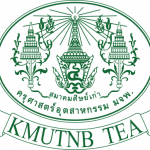Beneath the Surface Consumer Values Shift, Driving a 62% Surge in Ethical Spending & Transforming Bu
- Beneath the Surface: Consumer Values Shift, Driving a 62% Surge in Ethical Spending & Transforming Business news.
- The Driving Forces Behind Ethical Spending
- Impact on Industry Sectors
- The Rise of Sustainable Fashion
- Ethical Considerations in Food & Agriculture
- Socially Responsible Investing (SRI)
- Challenges and Opportunities for Businesses
- Authenticity and Transparency are Key
- The Role of Technology in Driving Ethical Change
- Looking Ahead: The Future of Ethical Consumption
Beneath the Surface: Consumer Values Shift, Driving a 62% Surge in Ethical Spending & Transforming Business news.
Recent shifts in consumer values are dramatically reshaping the marketplace, and the consequent surge in ethical spending is a compelling demonstration of this trend. A growing number of individuals are prioritizing companies that align with their beliefs, leading to a remarkable 62% increase in expenditure on goods and services from businesses perceived as ethical and sustainable. This shift isn’t merely a fleeting trend; it represents a fundamental change in how people evaluate products and brands, evolving beyond traditional metrics of price and quality. The impact on business is significant, requiring organizations to re-evaluate their operational practices, supply chains, and overall commitment to social responsibility. This change really impacts business news.
This movement towards conscious consumption is fueled by increased awareness of social and environmental issues, readily accessible information, and a desire to support businesses making a positive impact. Consumers are becoming increasingly discerning, demanding transparency and accountability from the brands they choose. This isn’t confined to a specific demographic; it spans generations, income levels, and geographic locations, demonstrating the widespread nature of this evolving value system. Businesses are responding, with many proactively adopting more sustainable practices, embracing fair trade principles, and investing in initiatives that promote social good.
The Driving Forces Behind Ethical Spending
Several key factors are contributing to the increasing prominence of ethical spending. Firstly, heightened awareness of environmental challenges like climate change and resource depletion is prompting consumers to seek out eco-friendly products and businesses. Secondly, social concerns, such as fair labor practices and human rights, are playing a crucial role in purchasing decisions, with consumers actively avoiding companies associated with exploitative labor conditions. Finally, the rise of social media and digital platforms has empowered consumers to share information, hold businesses accountable, and collectively promote ethical brands.
Consumers have more access than ever before to information about a company’s practices, and they are utilizing this knowledge to inform their choices. Independent rating agencies, certifications, and online reviews contribute to this transparency, enabling consumers to assess a company’s commitment to social and environmental responsibility. Brands that demonstrate a genuine commitment to ethical practices often enjoy enhanced brand loyalty and a positive reputation, attracting both customers and investors.
| Environmental Sustainability | Preference for eco-friendly products | Sustainable sourcing, reduced carbon footprint |
| Fair Labor Practices | Avoidance of exploitative labor | Fair wages, safe working conditions |
| Transparency & Accountability | Demand for open communication | Clear supply chain information, public reporting |
Impact on Industry Sectors
The surge in ethical spending is reverberating across numerous industry sectors, forcing businesses to adapt and innovate. The fashion industry, historically associated with fast fashion and questionable labor practices, is facing growing pressure to adopt more sustainable materials and promote fair working conditions. The food industry is witnessing increased demand for organic, locally sourced products, and companies committed to animal welfare. Financial institutions are seeing a rise in socially responsible investing, where investors actively seek to support companies aligned with their values. These shifts demonstrate that ethical considerations are no longer a niche concern but a mainstream driver of consumer behavior.
The Rise of Sustainable Fashion
The fashion sector has been under intense scrutiny for its environmental impact and labor practices. Consumers are increasingly demanding transparency regarding where and how their clothes are made. Brands are responding by adopting sustainable materials such as organic cotton, recycled polyester, and innovative alternatives like pineapple leather (Piñatex). Furthermore, there is growing focus on fair wages and safe working conditions throughout the supply chain. The adoption of circular economy principles, emphasizing durability, repairability, and recyclability, is also gaining traction, shifting the industry away from the linear ‘take-make-dispose’ model.
Ethical Considerations in Food & Agriculture
The food industry is facing increasing consumer demand for organic, locally sourced, and sustainably produced food. Consumers are becoming more aware of the environmental and social impacts of conventional agriculture, including pesticide use, deforestation, and animal welfare concerns. As a result, the demand for organically certified foods is steadily rising. Local and regional food systems are also gaining popularity, providing consumers with fresh, seasonal produce and supporting local farmers. Furthermore, there is growing interest in plant-based diets and alternative proteins, reflecting a broader movement towards sustainable food choices. This growth significantly alters reported business news.
Socially Responsible Investing (SRI)
Socially Responsible Investing (SRI) has emerged as a powerful force in the financial sector. Investors are increasingly seeking to align their investment portfolios with their values, prioritizing companies that demonstrate strong environmental, social, and governance (ESG) performance. ESG funds, which consider these non-financial factors alongside traditional financial metrics, have experienced significant growth in recent years. This trend is driven by a belief that companies with strong ESG practices are better positioned for long-term success and resilience. Emerging technologies in fintech also enable investors to track the ESG performance of companies with greater precision.
Challenges and Opportunities for Businesses
Adopting ethical practices presents both challenges and opportunities for businesses. Implementing sustainable sourcing, ensuring fair labor standards, and improving transparency can require significant investments and operational changes. However, organizations that successfully navigate these challenges can unlock a wealth of benefits, including enhanced brand reputation, increased customer loyalty, and a competitive advantage in the marketplace. Furthermore, embracing sustainability can drive innovation, reduce costs, and attract top talent.
Authenticity and Transparency are Key
Consumers are highly discerning and will quickly detect inauthenticity or ‘greenwashing’ – the practice of making misleading claims about a company’s environmental or social impact. For businesses to build trust and credibility, they must be transparent about their practices, honest about their challenges, and genuinely committed to continuous improvement. Publishing detailed sustainability reports, undergoing independent certifications, and actively engaging with stakeholders are all critical steps in demonstrating a genuine commitment to ethical behavior. This is important for several areas of business news.
The Role of Technology in Driving Ethical Change
Technology is playing an increasingly important role in enabling ethical business practices. Blockchain technology can provide greater transparency and traceability throughout supply chains, ensuring the authenticity and ethical sourcing of raw materials. Artificial intelligence (AI) can be used to optimize resource usage, reduce waste, and identify potential risks in supply chains. Digital platforms facilitate the sharing of information and enable consumers to voice their concerns and hold businesses accountable. These technologies empower businesses to operate more ethically and consumers to make more informed choices.
- Implementing sustainable sourcing practices.
- Ensuring fair labor standards throughout the supply chain.
- Investing in transparency and accountability measures.
- Adopting circular economy principles.
Looking Ahead: The Future of Ethical Consumption
The trend towards ethical consumption is poised to accelerate in the years to come. As awareness of social and environmental issues continues to rise, consumers will increasingly prioritize businesses that align with their values. The growing demand for transparency and accountability will force companies to address their ethical shortcomings and embrace more sustainable practices. Technological innovations will further empower consumers and enable businesses to operate more ethically. The companies that recognize and embrace this shift will be well-positioned to thrive in the evolving marketplace.
- Increased consumer awareness of social and environmental issues.
- Growing demand for transparency and accountability.
- Technological advancements enabling ethical practices.
- Increased investor interest in ESG performance.
| Growing Demand for Sustainability | Increased pressure to reduce environmental impact | Innovation in sustainable products and services |
| Focus on Ethical Sourcing | Need for greater supply chain transparency | Stronger relationships with responsible suppliers |
| Rise of Conscious Consumerism | Enhanced brand reputation and loyalty | Development of purpose-driven marketing campaigns |



